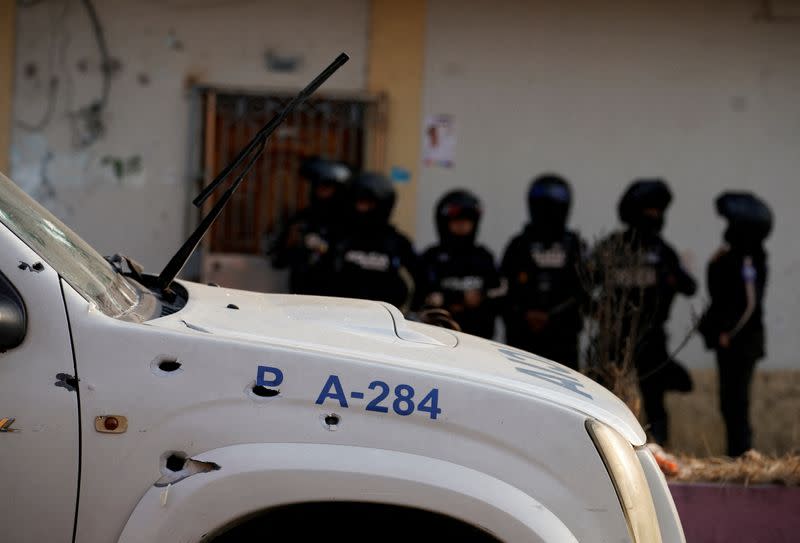Ecuador youth choosing gangs as route out of poverty, UN expert says

By Alexandra Valencia
QUITO (Reuters) - Poor young Ecuadoreans are choosing to join criminal gangs as an easy way to escape poverty due to a lack of opportunity, according to a UN Special Rapporteur, who urged the country to increase social investment to combat violence.
Lawlessness has soared across Ecuador since the coronavirus pandemic, something outgoing President Guillermo Lasso blames on disputes related to drug trafficking and common crime.
Some 27% of Ecuadoreans live in poverty, while 10.8% live in extreme poverty on a national level, according to the government's statistics office.
Those figures skyrocket in rural areas, to 46.4% and 22.6% respectively.
Olivier De Schutter, the United Nations special rapporteur on extreme poverty and human rights, said impoverished youth were easy picking for gangs looking to recruit new members.
"Poverty afflicts particularly the young adults in this country, and many in fact choose either to join the gangs or to migrate to the U.S.," he said in an interview on Thursday.
Improving security in Ecuador cannot just be left to the security forces and measures, De Schutter said, adding that efforts to calm violence most also take on a social aspect.
Lasso, who brought forward elections to avoid impeachment, has repeatedly declared states of emergency in answer to outbreaks of violence.
"Many people propose a law and order response to the rise in insecurity levels, reference was made to Bukele's achievements in El Salvador," De Schutter said, referring to measures enacted by the Central American country's President Nayib Bukele.
"We need a social Bukele, one that takes seriously the links between poverty and the rise in violence," he added.
Presidential candidates Luisa Gonzalez, a leftist protege of former President Rafael Correa, and young businessman Daniel Noboa will face each other in runoff voting on Oct. 15. Both have promised crackdowns on crime and measures to tackle poverty.
Ecuador's new government should lower taxes for those who can least afford to pay, De Schutter said.
(Reporting by Alexandra Valencia; Writing by Oliver Griffin; Editing by Bill Berkrot)


